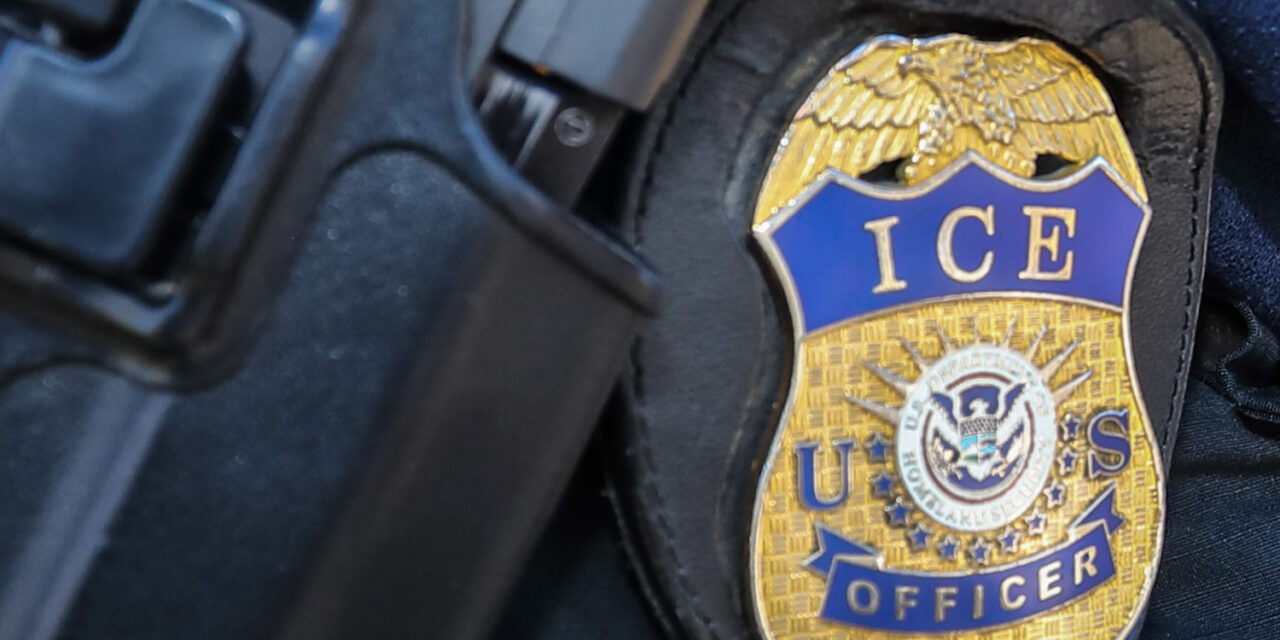The shooting in McAllen is the latest in a number of violent attacks on federal immigrations authorities tasked with detaining and deporting illegal aliens. The Trump White House is demanding Democrat elected officials tone down the anti-ICE rhetoric.
A heavily armed gunman identified as 27-year-old Ryan Louis Mosqueda was killed after launching a brazen ambush on a U.S. Border Patrol facility in McAllen, Texas early Monday morning. Authorities say the attack appeared premeditated and was aimed at federal agents, highlighting growing volatility around immigration enforcement.
Mosqueda approached the Rio Grande Valley Sector Annex near McAllen International Airport just before 6 a.m., armed with an assault rifle and clad in tactical gear. He fired dozens of rounds at the facility and Border Patrol agents stationed there, according to McAllen Police Chief Victor Rodriguez. Though Mosqueda was quickly neutralized by return fire from agents and local police, three individuals—a McAllen police officer, another officer, and a Border Patrol employee—were injured during the exchange. One officer, Ismael García, was shot in the knee and is recovering in stable condition.
Investigators found Mosqueda’s white Chevrolet parked nearby, bearing Michigan license plates and the ominous Latin phrase “CORDIS DIE” spray-painted in black on the driver’s door. The phrase references a fictional anarchist terrorist group from the video game Call of Duty: Black Ops II, though officials have not confirmed any ideological motive. Authorities discovered more weapons and ammunition inside the vehicle.
Mosqueda, originally from Michigan, had been reported missing hours earlier from an address in Weslaco, roughly 16 miles from the shooting scene. His Michigan driver’s license was recovered at the scene, and his identity has since been confirmed by the FBI, which is now leading the investigation.
While the shooter failed to breach the facility itself, the attack disrupted operations at McAllen International Airport and heightened concern among law enforcement and federal officials.
The Department of Homeland Security (DHS) released a statement confirming the attack and commending agents and officers for their swift response. “This morning, an individual opened fire at the entrance of the United States Border Patrol sector annex in McAllen, Texas. Both Border Patrol agents and local police helped neutralize the shooter,” the statement read. The FBI emphasized that there is currently no ongoing threat to public safety, though officials urged the public to avoid the area while investigations continue.
The shooting follows another violent incident days earlier in Alvarado, Texas, where a local police officer was shot in the neck outside an Immigration and Customs Enforcement (ICE) detention center. Multiple suspects were arrested in that case, which has also been linked to growing hostility against federal immigration authorities.
Deputy Attorney General Todd Blanche responded to both incidents by reiterating the Department of Justice’s zero-tolerance stance on violence against federal officers or property. “We will bring the full weight of the law against those responsible,” he wrote on social media platform X.
The attacks come at a time of intensified immigration enforcement under President Donald Trump’s administration. A recently passed spending bill has expanded resources for immigration raids, with top adviser Stephen Miller reportedly setting a new target of 3,000 arrests per day—up from the prior average of 650.
Meanwhile, technological tools like ICEBlock—an iOS app that alerts users to nearby ICE activity—are drawing scrutiny from federal officials. Although the app’s developer, Joshua Aaron, insists it is meant to inform rather than incite, DHS leaders argue that such platforms endanger law enforcement officers. ICE Acting Director Todd Lyons cited a reported 500% increase in assaults on agents, though no context or evidence was provided.
Trump officials have also condemned media coverage of such apps, with Homeland Security Secretary Kristi Noem suggesting potential legal action against CNN for reporting on ICEBlock. Critics argue these moves reflect an effort to chill speech and avoid scrutiny of immigration policy and enforcement practices.






